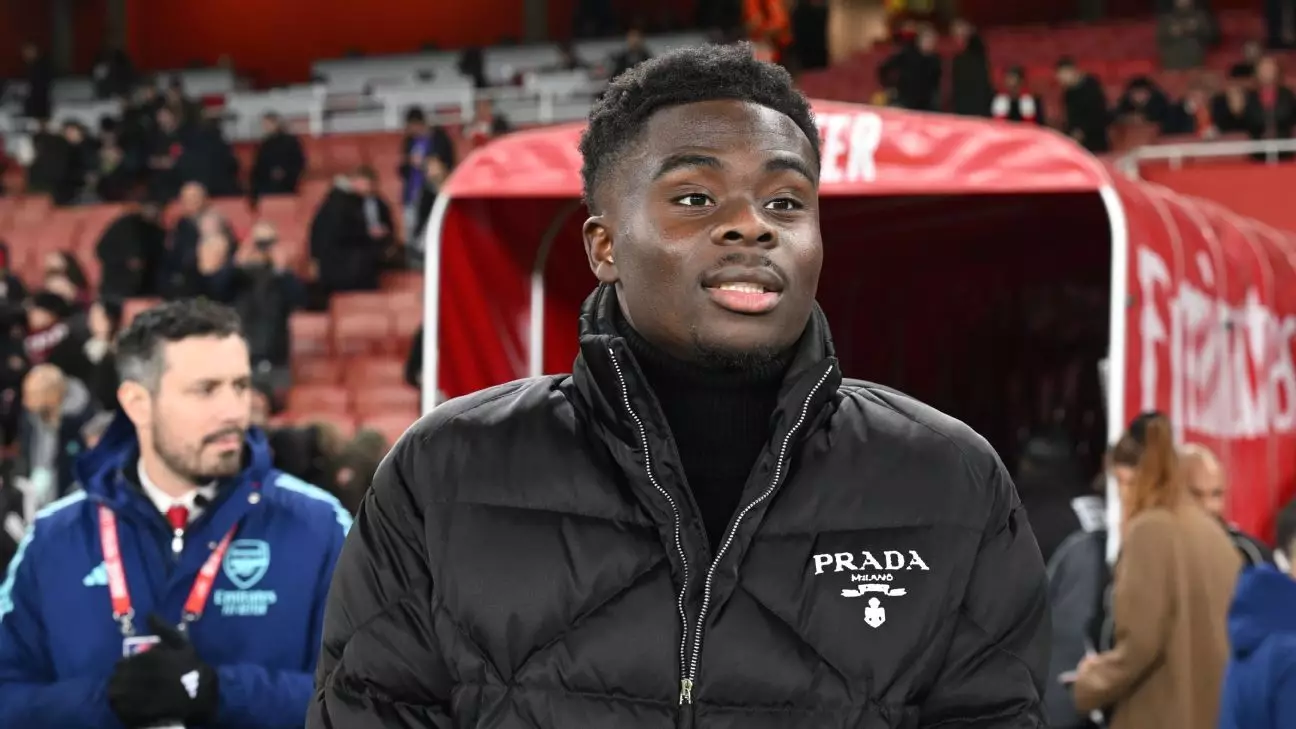In the high-stakes world of Premier League football, player injuries can drastically change the course of a team’s season. Arsenal’s rising star, Bukayo Saka, has found himself sidelined due to a significant hamstring injury, a situation that highlights not only the physical toll of the sport but also the psychological implications for athletes. As Arsenal’s manager, Mikel Arteta, recently emphasized, it is vital for Saka to take necessary time off to refresh and recuperate.
Saka’s injury, which resulted from a strenuous match against Crystal Palace—a game that ended with a commanding 5-1 victory for Arsenal—required surgical intervention, sidelining him until at least March. Arteta has made it abundantly clear that though recovery is key, mental well-being is equally important. Players often used to pushing their limits may overlook the importance of rest, which can lead to burnout or diminished performance. Arteta’s comments resonate beyond mere physical health; they address the human side of sport where mental respite is just as crucial.
Arteta’s recommendations for Saka to temporarily disconnect from football—with options to travel with family or even enjoy solitary time—reflect a growing understanding in sports science regarding mental health in athletes. An extended period of intense competition can lead to fatigue that affects focus, performance, and ultimately, long-term fitness. Saka, despite being dedicated to his teammates and their endeavors, must prioritize his recovery and mental wellness over the immediate commitment to the squad.
While it’s tempting to view Saka’s absence simply in terms of missed matches, the repercussions extend further. Arsenal’s struggle without the young winger has been evident, influencing their recent outcomes such as their unexpected exit from the FA Cup and vulnerable positioning in the Carabao Cup. The team’s dynamics can falter without key players, but it’s important to acknowledge that a player’s health and well-being should take precedence.
Saka is not the only player feeling the strain; injuries have also plagued other key figures such as Gabriel Jesus and defenders Takehiro Tomiyasu and Ben White. This cluster of injuries invites the question of Arsenal’s overall player management and conditioning strategies. While it’s essential to urge players like Saka to take time away from the pitch, it also reflects on the need for clubs to develop robust support systems capable of protecting player health over the long term.
In light of current circumstances, Arsenal’s coaching staff and management must reevaluate their strategies for player recovery, integrating more preventative measures to help mitigate future injuries. This could mean considering more personalized training regimens and recovery plans that account for both the athlete’s physical prowess and mental state.
As Bukayo Saka embarks on his road to recovery, the situation serves as a pivotal lesson in the ongoing conversation about athlete welfare. With Mikel Arteta’s insight into the necessity of downtime, it’s evident that fostering resilience within the squad goes hand-in-hand with individual well-being. As Arsenal navigates this challenging phase, the emphasis on refreshment and rehabilitation will be crucial not just for Saka, but for the entire team’s potential to rebound stronger in the pits of competition. Decisions made today regarding player health will shape not only the current season but the club’s future trajectory as well.

